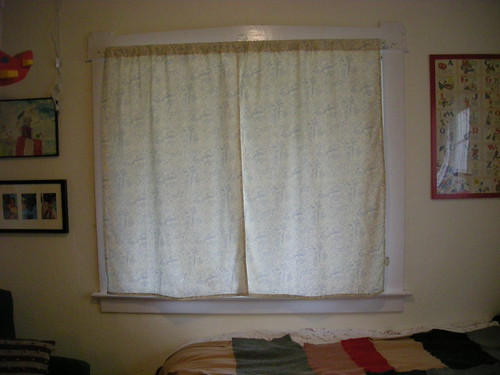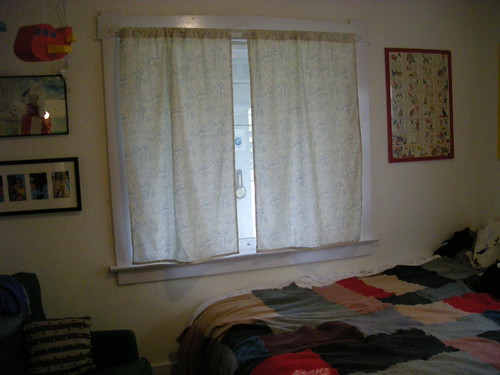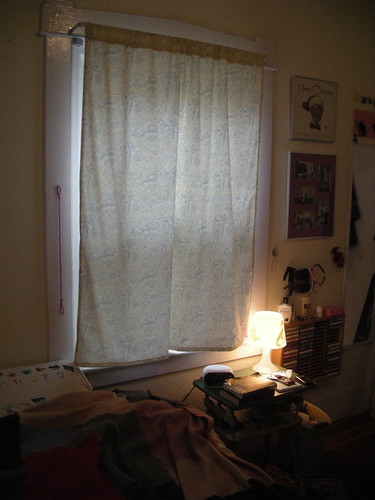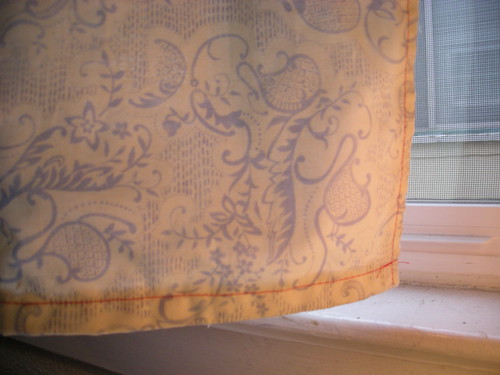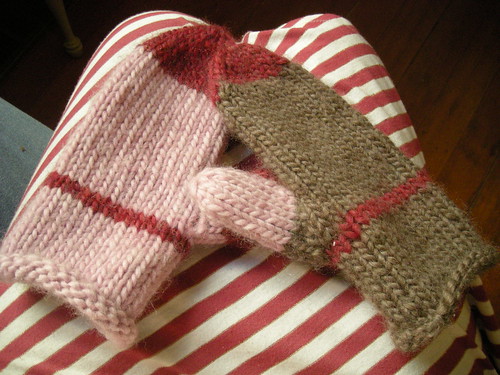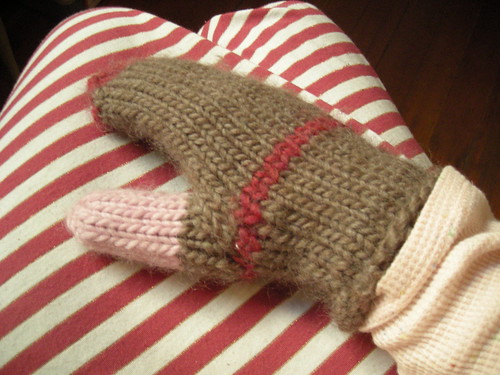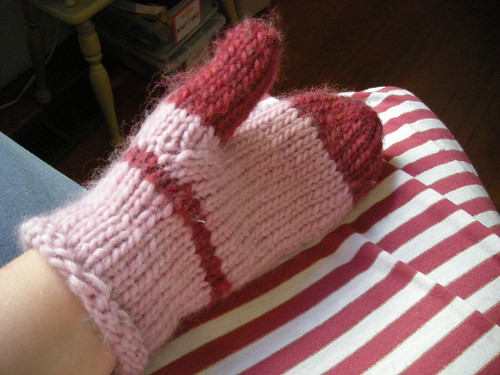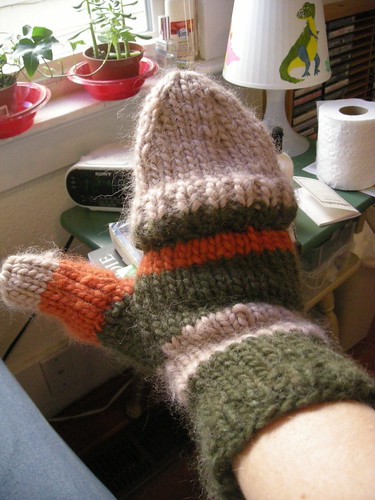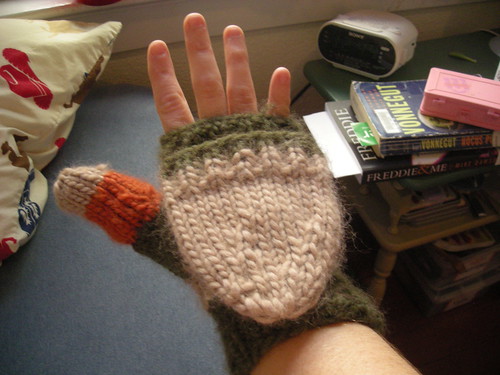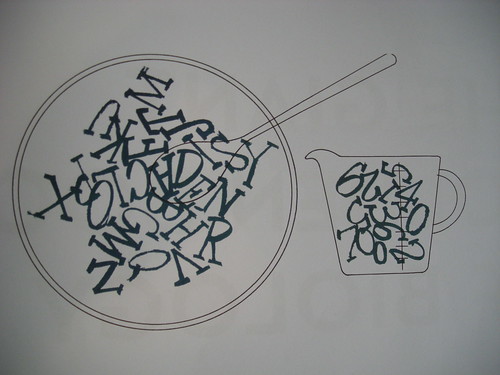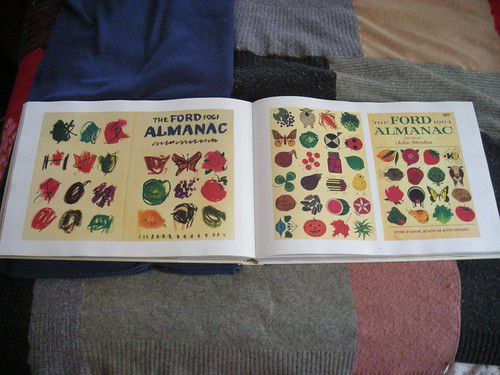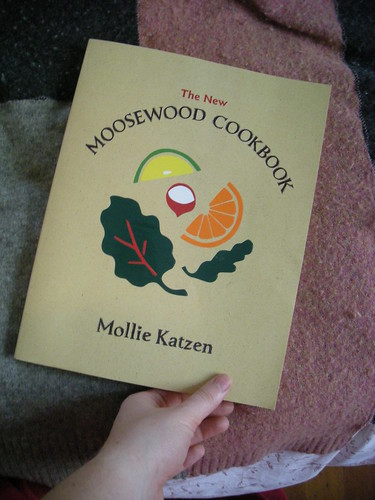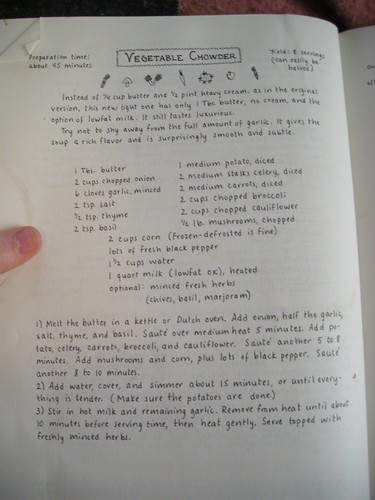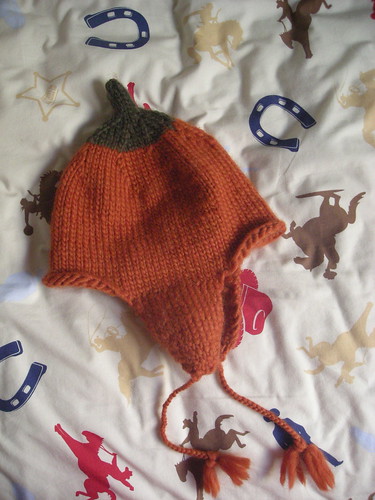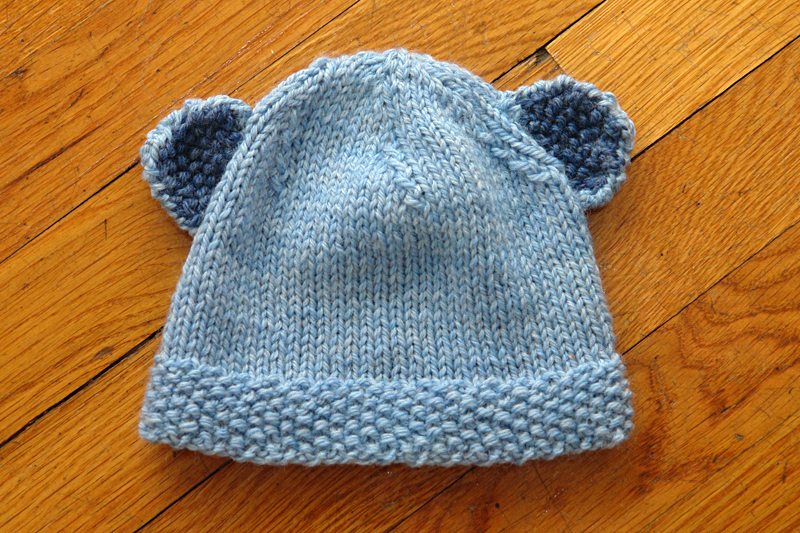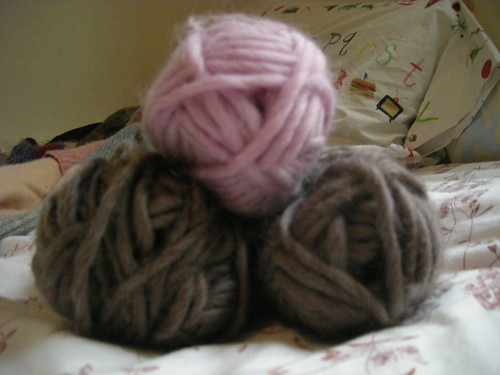She pointed out that this is because, most often, the things we buy are made for pennies an hour at factories overseas.
Which got me thinking about how we hardly ever have to face, let alone pay for, the true cost of the things we buy and use. And how far removed we've become from the processes that create the things we need. Here is someone who has a few things to say about it that I wouldn't dare try to paraphrase.
A few months ago (yes, it's only been 2.5 months since my move!), as I looked ahead to trading a large salary for a lot more time in my daily life, I figured I would balance things by using my extra time to make things for myself that I had been purchasing . . . like, for example, hats, and mittens, and curtains. And dinner. But I also intended to really think about the raw products I was buying - and not only in terms of their quality and value for me, but also in terms of where they come from and all of the ethical implications that encompasses. And it's certainly been a more expensive endeavor that I expected, in a strictly monetary sense.
And yet . . . how do I measure the value of making these things myself? The satisfaction seems immeasurable - and I'm not just talking about the pride of a finished product, which is enormous, but also the difference that the process makes in my lifestyle. Yesterday, I got to spend my day sewing and listening to my favorite records as my roommates came and went. I've spent entire Sundays sitting by a fire and knitting with friends. I will often spend an hour in the kitchen with my housemates preparing a nutritious meal together of raw, local ingredients I bought at the co-op. I'm not only making my own curtains and winter-wear and soup . . . in the process, I'm actually making my life how I want it.
Here are the fruits of a day and a half's [leisurely] labor (don't ask how much they cost):
